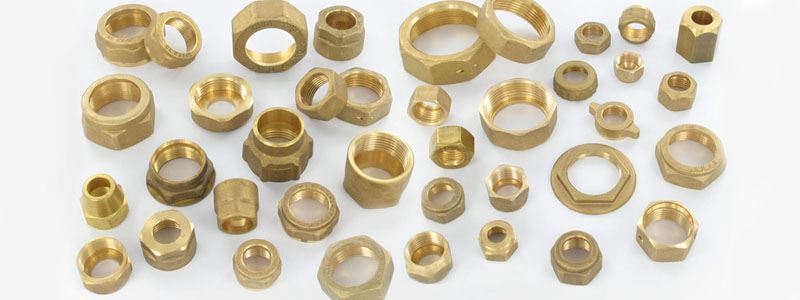Introduction:
In industrial manufacturing, the quality and trustability of factors like brass nuts can play a significant role in the integrity, safety, and performance of the final product. Brass nuts are popular due to their corrosion resistance and machinability.
Selecting the best brass nut manufacturer is a vital decision that can have effects on the supply chain, production system, and product quality! This blog explores some important aspects to consider when choosing a brass nut supplier for industrial applications.
1. Assess Supplier Experience and Industry Reputation
In many cases, a supplier’s experience in the industry reflects their understanding of material standards, quality control, and the specific needs of various industrial markets. Look for suppliers that have a good history and reputation in the market.
Key considerations:
- How many years has the supplier been in the business?
- Are they a brass fastener specialist, or do they offer a wider range of products?
- Are they known for serving industries such as automotive, aerospace, construction, or electronics?
- Are there any credentials or testimonials that speak to their authenticity?
2. Evaluate Quality of Product and Compliance to Standards
There is a high demand for high-quality brass nuts, especially in applications where safety and dependability are crucial. Your supplier must supply products that conform to international standards and specifications.
What to check:
- Do their brass nuts comply with ISO, DIN, ASTM, or BS standards?
- Do they offer a Material Test Certificate (MTC) or Certificate of Conformance?
- Are they capable of producing special requirements if required?
3. Check for Customization Capabilities
Industries often need a custom-sized or shaped brass nut in a particular finish or environmental condition. You should make sure the supplier you choose allows you to get the product customized and adjusted according to your specific requirements.
Customization possibilities might have
- Non-standard thread types or sizes
- Special coatings or coatings (nickel, chrome, etc.)
- Can be marked by laser, knurling, or other head configurations.
- Packaging and private labeling
Customization: Ensure your brass nuts fit perfectly into your production process.
4. Scrutinize Logistics and Delivery Terms
Delivery on time is vital in production. Delays in getting the right brass nuts can shut down assembly lines and disrupt business.
Check for:
- Average shipping times and partnering couriers
- Whether you are using just-in-time (JIT) delivery or regular scheduled truck dispatches
- Global vs. regional delivery capabilities
- Packaging specifications (corrosion protection, labeling, etc.)
A brass nut manufacturer with a good logistics network and commitment to delivery today and tomorrow is a valuable partner.
5. Understand Material Sourcing and Composition
Brass is an alloy composed of copper and zinc, but variations in the alloy have a compositional effect on mechanical properties. These properties remain compatible throughout the series due to the incorporation of copper as the dominant metallic element. You need to make sure that the brass fulfills your specific strength, corrosion resistance, or conductivity requirements.
Inquire about:
Source and traceability of the raw materials
A reputable brass nut manufacturer should be transparent about the materials used and provide full specifications.
6. Compare Price and TCO (Total Cost of Ownership)
Cost can’t be the only criterion, but it’s a critical one. Low-cost suppliers may save immediate costs, but there is a risk that they end up becoming more expensive due to lower performance or less reliability.
Factors to compare:
- Price per unit for standard and customized brass nuts
- Secondly, volume discounts and term contract pricing
- Terms of payment and credit options
- Total cost of ownership (including shipping, taxes, and quality control)
- Request detailed quotes and compare offers on a cost and value basis.
7. Evaluate Manufacturing Capacity and Scalability
Whether you’re a small company or a large manufacturer, your supplier should be suitable to meet your volume needs without delays. Make sure they have production capabilities to scale up in case of increased demand.
Ask about:
- Minimum and maximum quantities that can be ordered
- Lead times for both standard and custom orders
- Manufacturing technology used such as CNC, forged, etc.
A supplier with adaptable production capabilities can support you as your business grows.
8. Look for Sustainable and Ethical Practices
Ethical sourcing and sustainability are also more important in today’s world. Businesses generally prefer suppliers who don’t create much environmental waste and who pay decent wages.
Check if the supplier:
- Complies with green-friendly manufacturing practices
- Uses recyclable packaging
- Complies with RoHS, REACH, or similar environmental requirements
9. Ask for Samples and Conduct a Trial Order
Before finalizing a large order, request product samples or place a small trial order to assure quality, compatibility, delivery performance, and other dependability enterprises.
What to observe:
- Accuracy and Surfaces Finish of Parts
- Thread consistency and ease of installation
- Packaging and labeling
- Delivery lead time
A successful trial will give you a measure of confidence to scale orders with that supplier.
Conclusion
When selecting a brass nut supplier for industrial operation that offers the great quality brass nuts that are dependable, cost-effective, customizable, and service- oriented. By conducting thorough due diligence in all of these areas, you can easily find a supplier that does not just meet your requirements but can also support your business as it expands and evolves.
Read More: Top Benefits of Using Brass Valve Fittings
















Comments